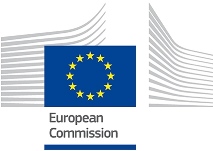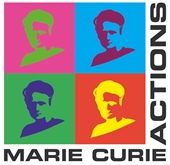






H2020 MSCA IF CENTURION project 707068 aims at joining several multidisciplinary research aspects that belong to the fields of non-linear dynamics, optical communications, FPGA programming and informatics and establish FPGA-assisted and photonic reservoir computing (RC) as intelligent high-speed methodologies in data traffic management of broadband optical signals. The duration of the project is 24 months, starting from the 1st of July 2016.

Europe has a long tradition of excellence in research and innovation, and each Member State has its own research and innovation policies and programs. Thanks to its continental dimension, the European Union—made up of 28 sovereign nations working together—is perfectly positioned to stimulate, coordinate, and advocate for policies that help propel and finance research and development, remove impediments to innovation, and clear the way to bring innovations to market. The EU invests heavily in research, technological development, and innovation. Since 1984, the EU’s seven Framework Programs for Research and Technological Development have provided multi-year funding and direction for research, innovation, and technological development. The latest framework - Horizon 2020 - brings together all existing EU-level programs that support research and innovation to ensure scientific excellence; boost industrial leadership and competitiveness; and tackle societal challenges.

Horizon 2020 is the biggest EU Research and Innovation programme ever with nearly €80 billion of funding available over 7 years (2014 to 2020) – in addition to the private investment that this money will attract. It promises more breakthroughs, discoveries and world-firsts by taking great ideas from the lab to the market. Horizon 2020 is the financial instrument implementing the Innovation Union, a Europe 2020 flagship initiative aimed at securing Europe's global competitiveness. Seen as a means to drive economic growth and create jobs, Horizon 2020 has the political backing of Europe’s leaders and the Members of the European Parliament. They agreed that research is an investment in our future and so put it at the heart of the EU’s blueprint for smart, sustainable and inclusive growth and jobs. By coupling research and innovation, Horizon 2020 is helping to achieve this with its emphasis on excellent science, industrial leadership and tackling societal challenges. The goal is to ensure Europe produces world-class science, removes barriers to innovation and makes it easier for the public and private sectors to work together in delivering innovation.

The Marie Skłodowska-Curie actions (MSCA) provide grants for all stages of researchers' careers and encourage transnational, intersectoral and interdisciplinary mobility. The MSCA enable research-focused organisations (universities, research centres, and companies) to host talented foreign researchers and to create strategic partnerships with leading institutions worldwide. The MSCA aim to equip researchers with the necessary skills and international experience for a successful career, either in the public or the private sector. The programme responds to the challenges sometimes faced by researchers, offering them attractive working conditions and the opportunity to move between academic and other settings. The MSCA are open to all domains of research and innovation, from fundamental research to market take-up and innovation services. Research and innovation fields are chosen freely by the applicants (individuals and/or organisations) in a fully 'bottom-up' manner.